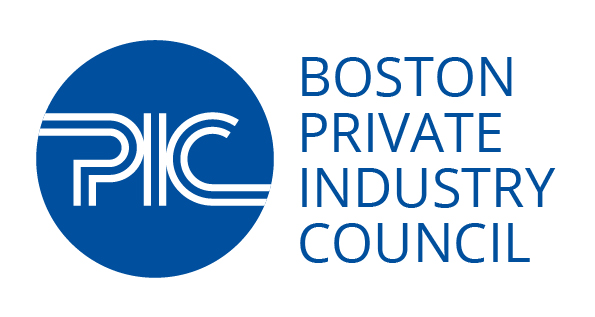The PIC recognizes the importance of both postsecondary education and work-based learning in young adults’ career trajectories. College completion pays substantial dividends on the job market, particularly when paired with career exploration and internships, while our research on Opportunity Youth—16 to 24-year-olds who aren’t in school and aren’t working—has highlighted the importance of alternative career pathways for high school graduates who do not go on to college.
As a complement to our frontline postsecondary work, the PIC co-convenes the Boston Opportunity Youth Collaborative to inform city and state policy and practice around education, employment, and economic independence for Opportunity Youth.
Postsecondary Coaching
In partnership with Bunker Hill Community College (BHCC) and the University of Massachusetts-Boston (UMB), the PIC provides career coaching and college navigation support for Boston Public Schools graduates at those campuses. Two coaches offer career exploration and employment support for current BPS graduates at BHCC and UMB, supported by the Salesforce Foundation. Two additional coaches support college navigation at BHCC and UMB. This added support benefits both new enrollees as they choose their majors and current students as they prepare for the transition from college to career.
Opportunity Youth Collaborative
Co-convened with the Boston Opportunity Agenda, the Boston Opportunity Youth Collaborative (OYC) brings together local community-based organizations, philanthropy, city agencies, postsecondary institutions, and youth leaders to drive collective impact around pathways for Opportunity Youth. The OYC works to strengthen education and employment pathways, connect relevant groups, and effect systems and policy change for this population, both at the local and state levels.
Young Adult Career Center Services
Knowing that a significant number of BPS graduates never start or finish college, the PIC works with the city’s two career centers, the JVS MassHire Downtown Career Center and the MassHire Boston ABCD Career Center, to connect young adults to alternative pathways to a career, such as occupational training or jobs with high quality career potential.
This career center initiative engages young adults with interest inventories, skills assessments, career exploration activities, and virtual reality career exploration technology. The team helps them imagine their long-term career goals, manage their finances, and think about the future while surviving in the short-term. The career centers and the PIC collaborate to conduct outreach within BPS and the community so that young adults become aware that these services are available to them.
Success Boston
Success Boston is Boston’s citywide college completion initiative. The PIC is a member of the initiative, which is led by the Boston Opportunity Agenda. Mayor Thomas M. Menino announced the Success Boston cross-sector college completion campaign, which he chaired, and the Boston Foundation funded nonprofit organizations, including the PIC, to provide transition coaching for BPS graduates, particularly those who attend local colleges and continue to live in the community. Currently, Success Boston is focused on collective impact, working with higher education institutions, the school district, philanthropy, and non-profits to support young people through completion.
